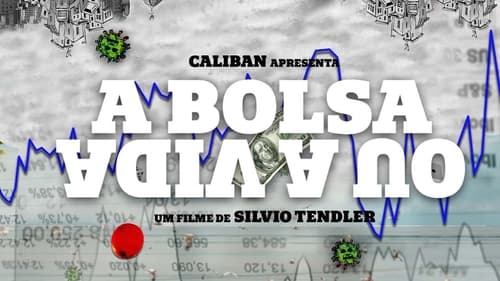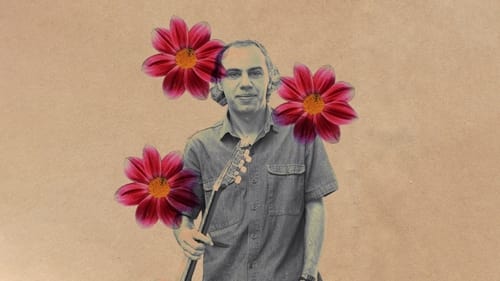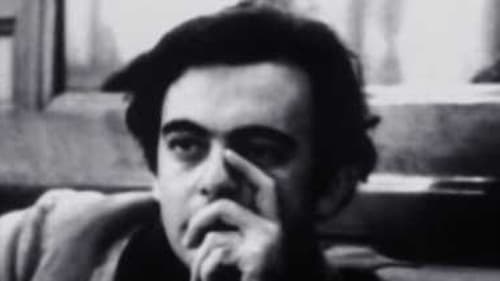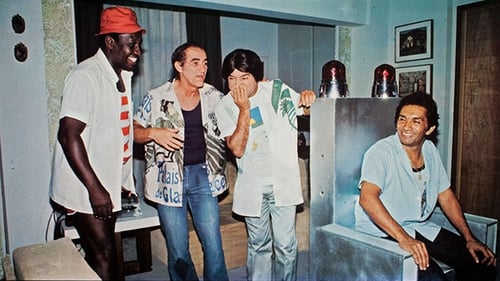
Director

Screenplay
In the post-pandemic future of covid-19, will the centrality be the financial casino and the accumulation of wealth by an elite or a quality life for all, with less inequality? Did the minimal state show itself capable of serving the collective? How to guarantee life without social and labor rights? What model of society do we want to live in? The film addresses the dismantling of the concept of social welfare and makes us reflect on the incompatibility of neoliberalism with a humanist project of society.

Director
In the post-pandemic future of covid-19, will the centrality be the financial casino and the accumulation of wealth by an elite or a quality life for all, with less inequality? Did the minimal state show itself capable of serving the collective? How to guarantee life without social and labor rights? What model of society do we want to live in? The film addresses the dismantling of the concept of social welfare and makes us reflect on the incompatibility of neoliberalism with a humanist project of society.

Screenplay
Younger brother of Henfil and Betinho, Chico Mário became a great guitarist and discovered in music his way of expressing himself and looking at the world.

Director
Younger brother of Henfil and Betinho, Chico Mário became a great guitarist and discovered in music his way of expressing himself and looking at the world.

In 1965, a year after the military coup in Brazil, an oasis of freedom opened in the country's capital. The Brasília Film Festival: a landmark of cultural and political resistance. Its story is that of Brazilian cinema itself.

Himself
Silvio Tendler goes through his life remembering the movements he was part of during the brazilian dictatorship and his adherence to socialism.

Writer
Silvio Tendler goes through his life remembering the movements he was part of during the brazilian dictatorship and his adherence to socialism.

Director
Silvio Tendler goes through his life remembering the movements he was part of during the brazilian dictatorship and his adherence to socialism.

Self

Writer

Director

Director
How is it possible to boost ways of leading one's life? What are the differences between the interpretation of life, from the scientific conception and the biblical conception? The reflection and the question about what would be the concepts of soul (transcendentality) and physical matter (body), conventions, and ruptures are points addressed by director Silvio Tendler in this documentary.

Writer

Director

Writer
In a small island convulsed by the 1959 revolution, Santiago Álvarez used the Seventh Art as a political weapon and created an aesthetic that became a reference in the documentary field. Santiago, who called himself a permanent traveler through history, registered the most significant facts of his time, from the Cuban Revolution to the disintegration of the Soviet Block. He took to spectators from all continents a counterpoint to the history narrated by the United States Information Service, USIS. Through his works, we dive into the Cuban political and cultural scene, the tensions of Latin America, the Vietnam War, the countless conflicts for African independence, always with a peripheral look that is characteristic of his cinema, currently converted into a memory of a world in transformation.

Director
In a small island convulsed by the 1959 revolution, Santiago Álvarez used the Seventh Art as a political weapon and created an aesthetic that became a reference in the documentary field. Santiago, who called himself a permanent traveler through history, registered the most significant facts of his time, from the Cuban Revolution to the disintegration of the Soviet Block. He took to spectators from all continents a counterpoint to the history narrated by the United States Information Service, USIS. Through his works, we dive into the Cuban political and cultural scene, the tensions of Latin America, the Vietnam War, the countless conflicts for African independence, always with a peripheral look that is characteristic of his cinema, currently converted into a memory of a world in transformation.

Writer

Director

Director

Writer
By approaching the financial system and its contradictions, the film raises questions about one of the main discourses of the financial authorities: that we can not spend more than we collect. Through several interviews, it gives an overview of how capital can influence politics and governments.

Director
By approaching the financial system and its contradictions, the film raises questions about one of the main discourses of the financial authorities: that we can not spend more than we collect. Through several interviews, it gives an overview of how capital can influence politics and governments.

New forms of insurgency and unrest on the fragments of the actions of some artists and activists. The recording of confrontation has its strongest expression in the performance. We see echoing clashes in a series of images. The cry begins before the other ends.

A documentary on Cosme Alves Netto (1937-1996), former head of the Cinematheque of the Museum of Modern Arts at Rio de Janeiro.

Director

Director

Director

Director
After impacting Brazil by showing the perverse consequences of the use of pesticides in O Veneno está na Mesa, director Sílvio Tendler presents the second film from a new perspective. Poison Is On The Table 2 updates and advances the approach to the current national agricultural model and its consequences for public health. The film presents agroecological experiments undertaken throughout Brazil, showing the existence of viable alternatives for the production of healthy foods, which respect nature, rural workers and consumers. With this documentary, comes the certainty that the country needs to take a stand in the face of the dilemma that presents itself: In which world do we want to live? The poisoned world of agribusiness or of freedom and agroecological diversity?

Director

Writer

Director

Ele mesmo

Director
It is a denunciation of the risks inherent to the planting of transgenics and the consumption of pesticides, which are purchased along with the seeds. Brazil is the world's largest planter of transgenics, which directly affects the country's food sovereignty and puts on every Brazilian's plate the equivalent of 5.2 liters of pesticides per year.

Director

Director
The world post-World War II and its transformations; the utopias that were created and the barbarity that have marked it. The dismantling of the dreaming generation of 1968 and the creation of new prospects in a globalized world.

Director
Personal records of characters of the student movement, of the youth's cultural activity, song. poetry, and theatrical plays made by militants in the past.

Director
Chronological profile of Brazil's student activism, from the 30s to the occupation of UNE's headquarters in Rio de Janeiro, 2007.

Director
The film deals with the process of globalization based on the thought of geographer Milton Santos, who through his ideas and practices, inspires the debate about Brazilian society and the construction of a new world. Santos discusses his views on the importance of respecting difference and his belief that an alternative globalisation model could wholly enfranchise all citizens of the world. An illustrious presence in 20th century social sciences, the man dubbed as ‘geography’s philosopher’ eloquently elucidates a developing world perspective on the global age.

Ele mesmo

Editor
Documentary about Brazilian filmmaker Glauber Rocha, one of the most important names in the Cinema Novo, with interviews with some of his friends and colleagues.

Screenplay
Documentary about Brazilian filmmaker Glauber Rocha, one of the most important names in the Cinema Novo, with interviews with some of his friends and colleagues.

Director
Documentary about Brazilian filmmaker Glauber Rocha, one of the most important names in the Cinema Novo, with interviews with some of his friends and colleagues.

Screenplay

Editor

Director

Writer
Built as a letter to JK in his centenary, the film shows what remained in the memory of Brazilians 26 years after his passing in a car accident in August 1976.

Director
Built as a letter to JK in his centenary, the film shows what remained in the memory of Brazilians 26 years after his passing in a car accident in August 1976.

Director

Writer

Director

Screenplay

Director

Writer
The story of João "Jango" Goulart, the Brazilian left-wing president deposed by the military.

Director
The story of João "Jango" Goulart, the Brazilian left-wing president deposed by the military.

Writer
Compilation of some of the best moments in the career of Brazilian comedy group "Os Trapalhões", with scenes from their previous films, also telling the story of each individual artist.

Director
Compilation of some of the best moments in the career of Brazilian comedy group "Os Trapalhões", with scenes from their previous films, also telling the story of each individual artist.

Director
Documentary about Brazilian history, from 1945 until the 70s, focusing on president Juscelino Kubitschek, his political rise, his philosophy of economical development, his gigantic project ...





























